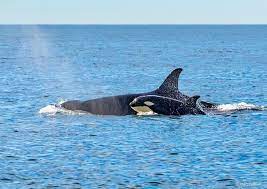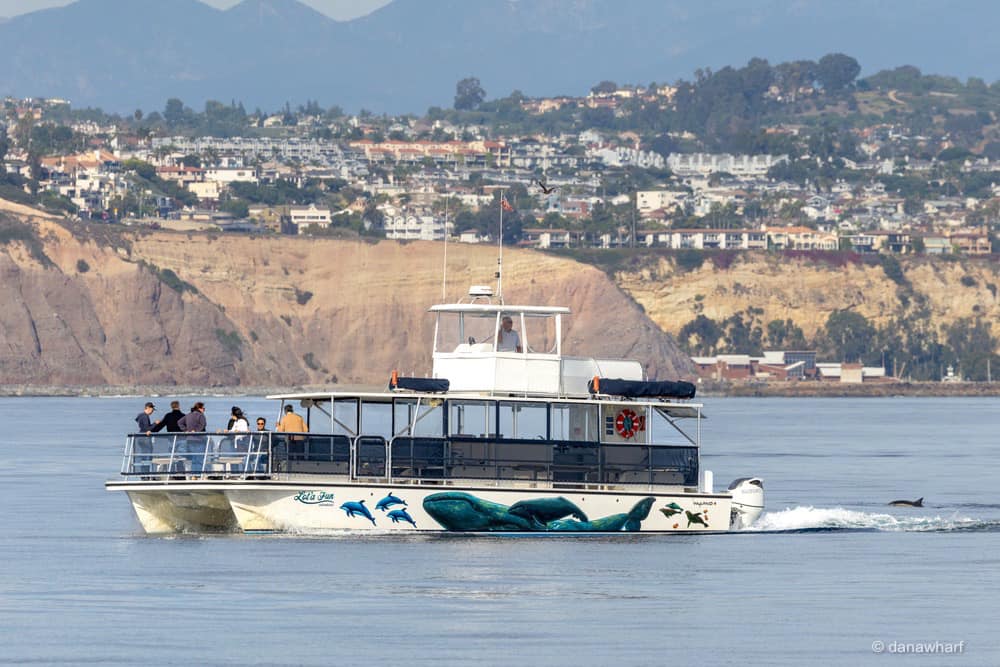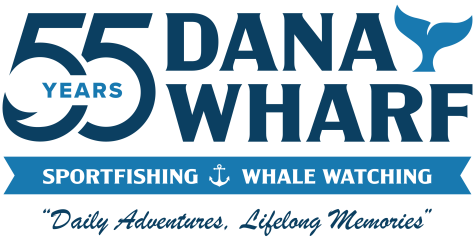The Role of a Marine Naturalist
The ocean, a vast and mysterious world, is home to an array of fascinating sea creatures. To understand and protect these creatures, we rely on the expertise of marine naturalists.
Marine naturalists are the bridge between the marine world and us. They study, educate, and advocate for the protection of marine life. Their work is crucial in preserving the health of our oceans.
In this article, we delve into the role of a marine naturalist. We explore their daily tasks, the tools they use, and the challenges they face. We also highlight the variety of marine naturalist jobs and where they work, with a focus on Dana Wharf.
Whether you’re considering a career in marine sciences or simply curious about the profession, this guide provides a comprehensive overview. Join us as we dive into the captivating world of marine naturalists.
What is a Marine Naturalist?

A marine naturalist is a professional who studies and educates others about marine life. They are experts in marine biology, with a deep understanding of ocean ecosystems and the creatures that inhabit them.
Their work involves conducting research, collecting data, and observing marine species in their natural habitats. They use this knowledge to educate the public, promote conservation efforts, and contribute to scientific understanding of the marine world.
Marine naturalists play a crucial role in environmental stewardship. They advocate for the protection of marine biodiversity and the sustainable use of marine resources. Their work often involves public engagement, raising awareness about the importance of marine conservation.
They also contribute to the tourism industry, leading wildlife tours and providing educational experiences for visitors. In this role, they help foster a connection between humans and the marine environment, promoting respect and appreciation for marine life.
In essence, a marine naturalist is a guardian of the sea. Their work is vital in preserving the health of our oceans, ensuring that future generations can enjoy the beauty and diversity of marine life.
The Path to Becoming a Marine Naturalist
Becoming a marine naturalist requires a combination of education, skills, and passion for the marine environment. The first step is usually obtaining a degree in marine biology, environmental science, or a related field. This provides a solid foundation in the scientific knowledge needed for the role.
In addition to formal education, practical experience is highly valued. This can be gained through internships, volunteer work, or field research projects. Such experiences provide hands-on learning and a chance to apply theoretical knowledge in real-world settings.
Marine naturalists also need a set of specific skills, including:
- Strong communication skills for public speaking and education
- Research and data analysis skills
- Knowledge of marine species and ecosystems
- Ability to work in outdoor and sometimes challenging conditions
Finally, a genuine love for the ocean and its inhabitants is essential. This passion drives marine naturalists in their work, inspiring them to advocate for marine conservation and share their knowledge with others.
Where Do Marine Naturalists Work?
Marine naturalists work in a variety of settings. Many are employed by marine conservation organizations, where they contribute to research, education, and advocacy efforts.
Others work in marine parks or aquariums, educating visitors about sea creatures and their habitats. They play a crucial role in raising public awareness about marine conservation.
Marine naturalists also find employment in the tourism industry. They guide wildlife tours, providing informative and engaging experiences for visitors.
Spotlight on Dana Wharf

Dana Wharf, located in Southern California, is a prime location for marine naturalists. It’s a hotspot for marine wildlife, attracting a diverse range of sea creatures.
Marine naturalists working at Dana Wharf have the opportunity to engage with the public on wildlife tours. They share their knowledge about the local marine life, contributing to the educational mission of the wharf.
Dana Wharf also supports marine conservation efforts. Marine naturalists play a key role in these initiatives, conducting research and promoting sustainable practices.
Working at Dana Wharf offers marine naturalists a unique opportunity to combine their love for the ocean with their passion for education and conservation.
The Variety of Marine Naturalist Jobs
The field of marine naturalism offers a wide range of job opportunities. Some marine naturalists focus on research, studying sea creatures and their habitats. They collect data, conduct experiments, and contribute to scientific knowledge about marine ecosystems.
Others work in education, developing and leading marine education programs. They create educational materials, conduct workshops, and engage with the public to raise awareness about marine conservation.
Marine naturalists also work in tourism, guiding wildlife tours and enhancing visitor experiences. They interpret the natural environment for tourists, providing insights into the behavior and ecology of sea creatures.
Finally, some marine naturalists work in policy and advocacy, influencing decisions that affect marine ecosystems. They work with government agencies, non-profit organizations, and community groups to promote sustainable practices and protect marine biodiversity.
Daily Tasks and Tools of the Trade
A marine naturalist’s daily tasks can vary greatly depending on their specific role. However, common tasks often include conducting field research, collecting and analyzing data, and educating the public about marine life.
Field research may involve observing sea creatures in their natural habitats, taking samples for laboratory analysis, or monitoring environmental conditions. This work often requires the use of specialized equipment, such as underwater cameras, sonar devices, and water quality testing kits.
Educational tasks can include leading tours, giving presentations, and creating educational materials. These tasks require excellent communication skills and a deep understanding of marine biology.
Marine naturalists also often use digital tools for data analysis, communication, and outreach. These can include GIS software for mapping and spatial analysis, social media platforms for public engagement, and digital databases for managing research data.
The Importance of Marine Naturalists in Conservation
Marine naturalists play a crucial role in the conservation of marine ecosystems. They help to protect and preserve the biodiversity of our oceans by studying and monitoring sea creatures and their habitats.
Through their research, marine naturalists contribute to our understanding of marine life and the threats it faces. This knowledge is vital for developing effective conservation strategies and policies.
Marine naturalists also play a key role in public education. By sharing their knowledge and passion for the marine environment, they can inspire others to care about and take action to protect our oceans.
Finally, marine naturalists often work in collaboration with other conservation organizations, contributing their expertise to collective efforts to protect marine biodiversity.
Challenges and Rewards of the Profession
The work of a marine naturalist is not without its challenges. They often face environmental threats such as pollution and climate change, which can have devastating effects on the marine ecosystems they strive to protect.
Despite these challenges, the profession is also incredibly rewarding. Marine naturalists have the opportunity to make a real difference in the conservation of our oceans and the creatures that inhabit them.
They also get to spend their days working in some of the most beautiful and fascinating environments on the planet. And there’s nothing quite like the thrill of discovering something new about the marine world.
Finally, marine naturalists play a crucial role in shaping public perception and attitudes towards marine conservation. Through their work, they can inspire others to care about and take action to protect our oceans.
How to Find Marine Naturalist Jobs
If you’re interested in becoming a marine naturalist, there are several places you can look for job opportunities. Many marine conservation organizations and research institutions regularly hire marine naturalists for various roles.
You can also check job boards that specialize in environmental and conservation jobs. These often list opportunities for marine naturalists.
Here are a few resources to get you started:
- Conservation Job Board
- Environmental Career Opportunities
- Marine Conservation Institute Job Board
- Society for Conservation Biology Job Database
Remember, networking is also a crucial part of job hunting. Attend conferences, join professional organizations, and connect with other professionals in the field.
